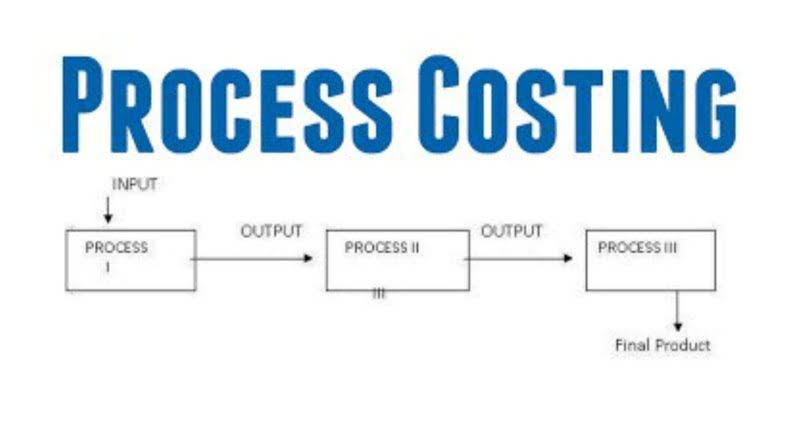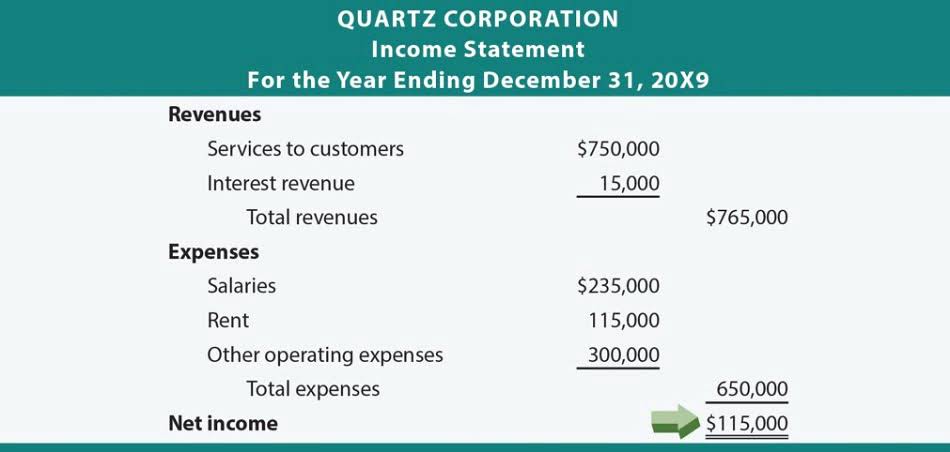Accounting for Startups The Complete Guide Tide Business

A CFO, or chief financial officer, is an executive-level position in charge of financial strategy. Throughout this article, we’ve said that your accountant can give you advice on many things. Through their experience, your accountant will have seen many different arrangements around financing, accounting methods, startup strategies, and more. When it comes to income taxes, you can still take advantage of certain tax credits even when your business has no taxable income. Finding opportunities to defer tax credits can help save you money down the line. If you’ve been in business for any period of time as a startup, you know that you don’t start out profitable.
- You can do this manually, but accounting automation software can automate these tasks so they’re handled quickly, accurately, and efficiently.
- Keep adequate working capital to meet your short-term fiscal obligations.
- Cash accounting is ideal for small businesses or sole proprietorships with straightforward financial transactions.
- There’s a lot of documentation that goes into each one of the tasks above.
- Our team will ensure your financial records are immaculate, your metrics are on point, and your financial story is compelling.
Statement of Owner’s Equity
- Most systems will charge you either per month or annually and you should determine which makes more sense for your business strategy.
- Regularly updating financial records is crucial for startups as it provides a real-time view of the company’s accounting health in the US.
- It also gives you flexibility – you only pay for the services you need when you need them.
- If the demands of startup life mean you don’t have time to learn QuickBooks, or if you’d rather leave bookkeeping to a pro, try Bench (that’s us).
- This data needs to get organized into something more useful for the investors, creditors, and analysts interested in the startup’s performance.
While cash accounting (calculating the money you have on hand and the money you owe) is relatively straightforward, it isn’t the method of accounting preferred by investors and banks. We offer valuable insights into financial forecasting, budgeting, and optimising your financial structure for growth. Consider us not just as accountants but as partners invested in your success. Well, whilst there is no obligation to use Perrys Chartered Accountants for your accountancy and bookkeeping services, we hope to demonstrate how we work with start-ups. The best accounting software for small business offers you normal balance the most features, the best price, and is one that scales with your business. Establishing good accounting workflows from the start will keep you from overlooking routine tasks.

Timely and accurate reporting
Want a more comprehensive look at how to set up the accounting and finances for your startup? By maintaining a focus on these financial strategies, you’ll be well-positioned to manage challenges and capitalize on growth opportunities as your startup scales. For founders short on time or not confident in handling financials, outsourcing is a smart option.
Manage Payroll

That said, you should hire an accountant as soon as your business begins making money and it’s viable. While you might not have much financial activity early on, you can use their guidance to make sound financial decisions for your startup. As you can see, bookkeeping and accounting go hand in hand, but the two functions are usually divided up into two different roles—the bookkeeper and the accountant. 1-800Accountant provides a full spectrum of services, including bookkeeping, tax preparation, and CFO support. With a client base that spans all 50 states and over a million consultations delivered, they bring significant experience to the table. Their services are designed to help startups manage common hurdles like cash flow management, tax filing, and securing investment.

This decision will determine how much taxes you’ll pay, your financial liabilities, and more. Regularly monitor your cash flow to ensure you have enough funds to cover operational costs and unexpected expenses. Consider creating a cash flow forecast accounting for startups to anticipate future cash needs and avoid shortfalls. When you’re just getting started, say, still working at your full-time job or newly established in shared workspace, it’s good to go the DIY route. After all, most of what you’ll be doing is basic accounting tasks like recording simple transactions.
- If you need an easy-to-understand accounting software package with great customer service and tech support, FreshBooks can help.
- A cheaper option might cost more in the long run if it lacks essential features or scalability.
- Kristen Slavin is a CPA with 16 years of experience, specializing in accounting, bookkeeping, and tax services for small businesses.
- It also generates reports and dashboards that can help you understand your financial performance and make informed decisions.
- Without solid accounting practices, you risk overspending, cash flow issues, and financial mismanagement.
Startups must prioritize data security during this transition period by implementing robust protocols for transferring sensitive financial information securely to the outsourced provider. During this transition phase, clear communication between both parties is essential for maintaining accuracy and consistency in startup accounting. This rapid expansion can complicate financial planning, cash flow management, and revenue recognition. Startups need to adapt quickly to changing financial circumstances, requiring a more dynamic approach to accounting.
Until you reach that point, doing your own startup accounting may be the most cost-effective option. Even if you’re not a numbers person, you can set up and maintain a powerful accounting system. All it takes is good software, smooth workflows, and some smart accounting advice for startups. Like many startup owners, you may have more passion for sales than for bookkeeping, but managing the money is essential to success. If you fail to set up a robust and scalable accounting system from day one, your business will suffer from financial errors, poor planning, growing pains, and a high potential for failure.

Learn the Different Types of Employment Taxes

Accounting is an essential aspect of financial management for new businesses. It includes recording, interpreting, and analysing financial information to facilitate decision-making, track performance, and ensure compliance with legal requirements. This will streamline your data entry process, help minimize errors, and give you valuable insights into your financial operations. Your accountant can help you choose the right software solution for your business. Calculating and itemizing all the assets and liabilities can be a tricky endeavor.
Free Course: Understanding Financial Statements
Effective accounting practices and sound financial management results in returns for the stakeholders and business owners. Startups need to build a solid accounting foundation to stay organized, increase efficiency, obtain financing, control expenses and identify possible risks and opportunities for the Bookkeeping for Etsy Sellers business. Whether you hire an accountant or opt for other accounting software, you need to understand the basics of startup accounting.

Deixe uma resposta
Want to join the discussion?Feel free to contribute!